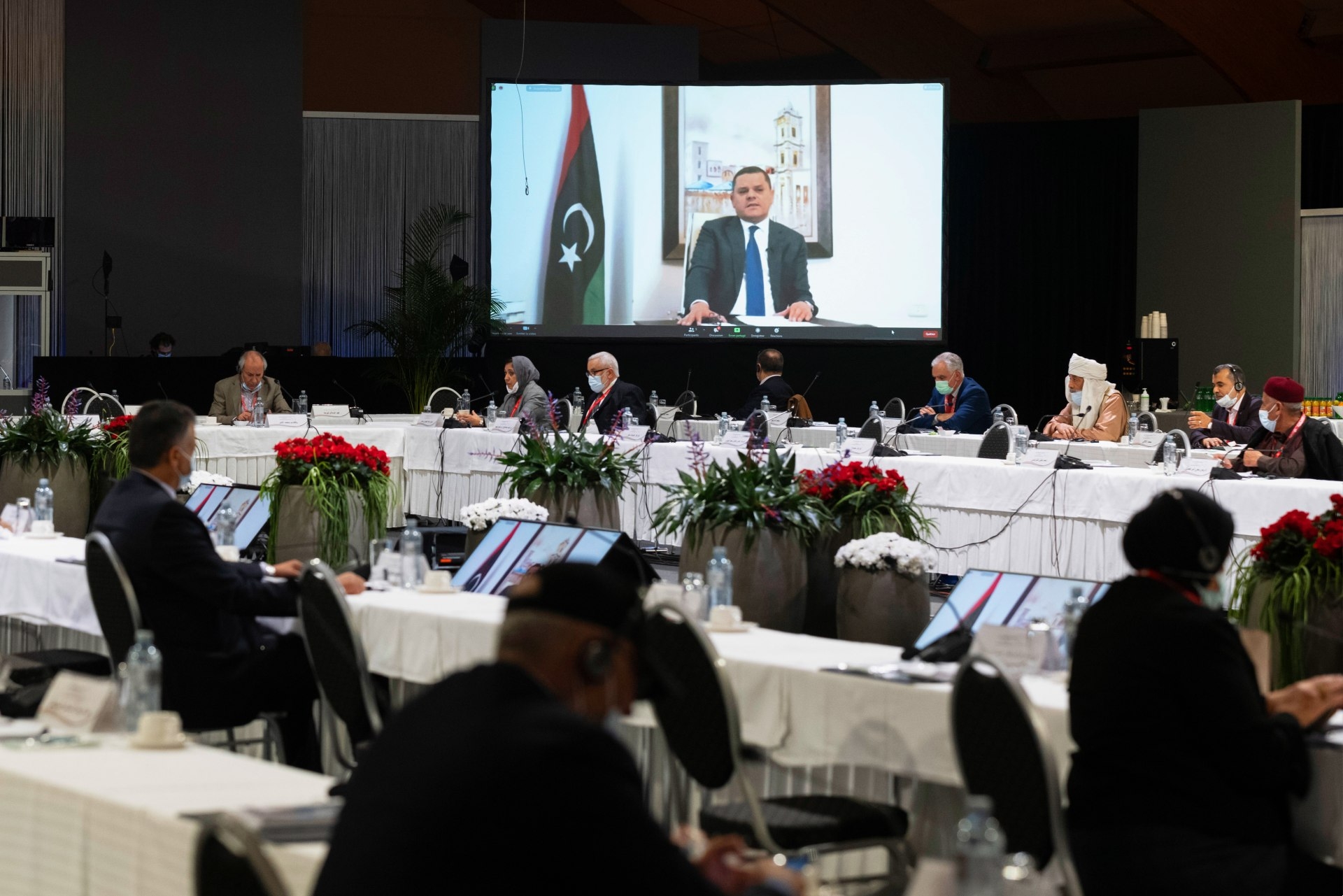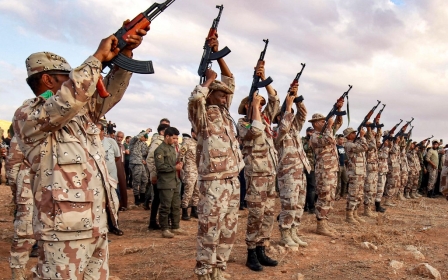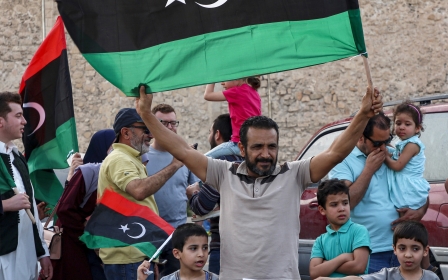Libya: Dbeibah surprise pick as new interim prime minister

A new Libyan leadership was elected on Friday by a UN-led forum, with Abdul Hamid Mohammed Dbeibah the surprise choice for the role of transitional prime minister in a four-man presidency council.
Mohammad Younes Menfi will become the new president of the presidency council in the unity administration, following the vote held outside Geneva.
The winning leadership group also includes Musa al-Koni and Abdullah al-Lafi.
Their list beat a slate including eastern-based parliament speaker Aguila Saleh and western-based interior minister Fathi Bashagha, who would have become prime minister.
"On behalf of the United Nations I am pleased to witness this historic moment," said acting UN Libya envoy Stephanie Williams.
New MEE newsletter: Jerusalem Dispatch
Sign up to get the latest insights and analysis on Israel-Palestine, alongside Turkey Unpacked and other MEE newsletters
Over five days, the UN-led forum in Switzerland held negotiations, formed the four-man voting lists and ended with Friday's vote.
'You overcame your differences, the divisions and the many challenges you faced in this fruitful but difficult journey in the interests of your country and the Libyan people'
- Stephanie Williams, acting UN Libya envoy
Each slate contained representatives of Libya's east and west, which have been led by rival administrations since 2014.
Saleh, an ally of eastern commander Khalifa Haftar, and Bashagha, an influential figure in the Government of National Accord from Misrata, represented two sides of a bitter civil war that cooled in June when Haftar's assault on Tripoli failed.
However, after progressing to the second round of voting on Friday, the heavyweights only secured 34 votes to the 39 won by Dbeibah's slate.
"I would like to convey my congratulations for the winning list. Today has been the most vivid manifestation of democracy. I wish them success [with their efforts] for the good of the country and its people," Bashagha tweeted following the result.
The vote in Switzerland is part of a UN-sponsored peacemaking process that seeks to end a decade of tumult since Muammar Gaddafi was removed by a Nato-backed revolution in 2011.
"You overcame your differences, the divisions and the many challenges you faced in this fruitful but difficult journey in the interests of your country and the Libyan people," Williams, the US envoy, said.
Every slate promised to carry out elections on 24 December and not stand in those polls. They also vowed to appoint women to at least 30 percent of senior government positions.
But the UN process does not have unanimous support in Libya, and it remains to be seen how the results will be taken by Haftar, a notoriously temperamental warlord who is essentially the ruling power in the east.
"There is a sigh of relief among many in western Libya who opposed a purely opportunistic deal with Agilah and Haftar. But this also means that the new executive will have very little traction, if at all, in the east," analyst Wolfram Lacher tweeted.
Middle East Eye delivers independent and unrivalled coverage and analysis of the Middle East, North Africa and beyond. To learn more about republishing this content and the associated fees, please fill out this form. More about MEE can be found here.




